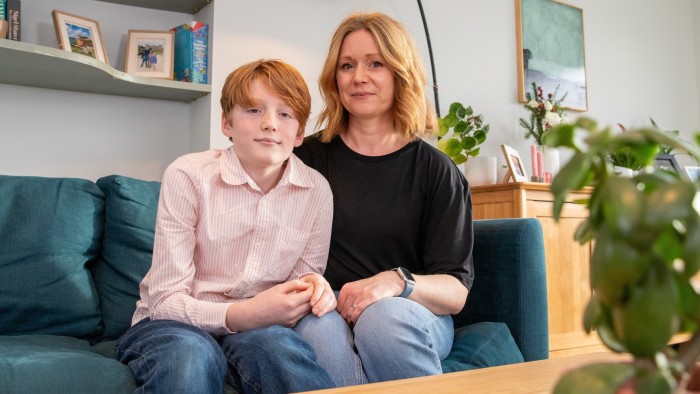Unlock the Editor’s Digest for free
Roula Khalaf, Editor of the FT, selects her favourite stories in this weekly newsletter.
A new children’s hospital in Cambridge will become the first in Europe, and one of the first in the world, to fully combine care for both physical and mental illnesses, helping to tackle stigma and speed up diagnoses.
Almost one in four children in the UK have a long-term physical health condition and they are four times more likely to also have a mental health problem compared with the average population, according to paediatric researchers.
Yet children often had to move between sites to get the healthcare they need, which is unnecessary disruption at a vulnerable time, said Rob Heuschkel, clinical lead for physical health at the planned Cambridge Children’s Hospital.
The model being implemented in Cambridge would be unique in Europe, he said.
While many hospitals did their best to offer mental health support, “where we’re different is that we’ve set out to design the hospital physically to accommodate children with mental health and physical health [conditions]” and “develop the sort of clinical model of care which deals with the child as a whole”, Heuschkel added.
“Rather than having to send an extremely malnourished child with an eating disorder to a physical health unit in an ambulance,” staff could “support each other, and each other’s patients, in a much more integrated way”, he said.
The hospital, expected to be completed in 2029, brings together two NHS trusts. The Cambridge University Hospitals NHS Foundation Trust specialises in physical healthcare, while the Cambridgeshire and Peterborough NHS Foundation Trust will provide mental health expertise. The University of Cambridge will run a research institute at the hospital.
Construction of the facility is expected to begin in 2027. Explaining the new approach the hospital is aiming to pioneer, Heuschkel gave the example of a child with stomach pains who might be sent to a psychologist rather than immediately being given an endoscopy as might happen in traditional “medical” care models.

The hospital will open its doors against the backdrop of an alarming surge in mental ill health among young people, widely believed to have been exacerbated by social media and the Covid-19 lockdowns.
A 2023 survey published by NHS England found that 20 per cent of children aged eight to 16 had a probable mental disorder, up from 12 per cent in 2017.
“We are aiming for a whole culture shift, which none of us have really come across anywhere else,” said Dr Isobel Heyman, consultant child and adolescent psychiatrist and the project’s clinical co-lead for mental health.
She added that there was good evidence that addressing mental and physical health at the same time reduced the amount of time spent in hospital, and therefore the cost.
Clare Mellor, whose 10-year-old son Edward has type one diabetes and coeliac disease, an autoimmune disease linked to the digestion of gluten, said that aside from the physical challenges of his condition, the diagnosis had taken a mental toll on her son.
“The bit that children struggle to articulate is that feeling of being scared of the unknown, not really being quite clear what’s happening,” she added.
She welcomed the idea that the new hospital would have a less medicalised environment with more space for children to spend time out of bed, outdoors and with their families.
A total of £100mn in government funding has been committed to the hospital, and half of a £100mn target from philanthropy has already been met. Further funding is expected to come from local and regional health bodies, the university and partner hospitals.

Heyman said that one of the most moving things young people had said during the consultation process was that being alongside children with physical conditions “would really reduce stigma” around mental illness.
“That is the sort of ‘parity of esteem’, which we’ve talked about for so many years in mental health, it’s making it reality,” she added.
Staff believe the new hospital will be able to undertake groundbreaking research that can help to entrench a more holistic treatment model far beyond Cambridge — and not only for children.
Heuschkel said: “How we learn from each other to innovate and improve this model is something that we want to then share nationally and perhaps across into adult services.”




